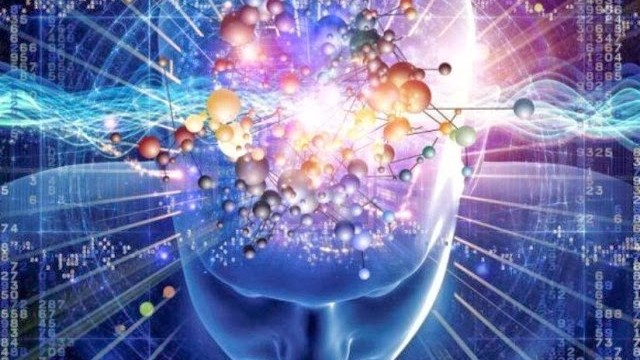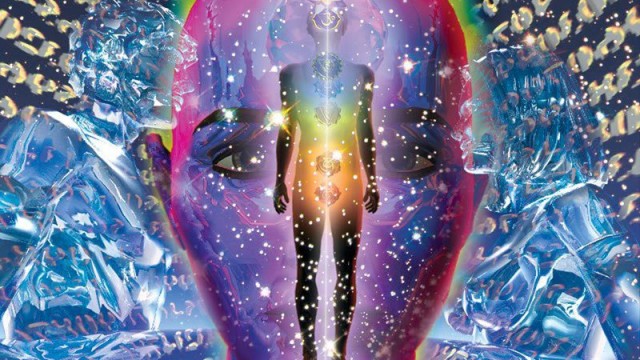For at least 100,000 years, since ‘modern man’ first emerged from Africa, humans have been as we are—tribal, self-centered, and dominated by the separative capabilities of ‘higher thought.’
 Now, as the fragmentation of the earth and humanity by the unwise use of symbolic thought reaches the breaking point, pressure increases for a transmutation of consciousness. Can it occur now, or in the unforeseeable future, or not at all?
Now, as the fragmentation of the earth and humanity by the unwise use of symbolic thought reaches the breaking point, pressure increases for a transmutation of consciousness. Can it occur now, or in the unforeseeable future, or not at all?
That a single species should have the power to denude and destroy the planet that gave rise to it is not just an existential mystery; it poses basic questions about evolution and consciousness.
On one side, many take false refuge in the belief that human beings are unimportant–infinitesimal specks on a speck in space. But humans evolved along with all other life, and are probably the earth’s only sentient species. Yet our species has begun the “Sixth Extinction.” Which raises the question: What is the place of potentially intelligent species in the universe?
On the other side are so-called religious people who insist that man was made in the image of God. To them, if they accept evolution at all, the previous five extinction events (defined as “a sharp decrease in the number of species in a relatively short period of time”) prove that nature is destructive. ‘Man is sinful, nature is without mercy, and salvation is an individual matter,’ they believe.
Most atheists say that man has no more meaning than any other species, and that our destructiveness is evidence that life is a chance event against a background of chaos. But order cannot come out of chaos, and the conundrum is how the disorder of man evolved from the order of nature.
Besides, there is a vast difference between a natural event, such as an asteroid impact causing a global ecological collapse and mass extinctions, and an event caused by a sentient species. Does our very destructiveness as humans points to our potential as human beings?
New Age folks talk about ‘the Higher Self’ as a manifestation of cosmic consciousness, but that begs a lot of questions, and upholds contradiction and duality.
So there is an unresolved and largely unrecognized mystery in the emergence of sentient species. Do all sentient species possessing science and technology tend to fragment their planets?
There is also the lesser mystery of thought-consciousness: How does the brain generate a sense of self? That question is largely the focus neuroscience, and will probably be resolved and replicated with computers, since the self is program, not a separate and permanent reality.
The essential mystery of life can never be scientifically solved however. Nor can the question of consciousness. Is there  consciousness without thought? Or is there only truly consciousness with the negation of thought in awareness?
consciousness without thought? Or is there only truly consciousness with the negation of thought in awareness?
So we we’re talking about three kinds of mystery: A largely unrecognized mystery (having to do with the evolution of symbolic thought, wherever it occurs in the universe); a recognized mystery (how the brain fabricates a self and the thought-consciousness associated with it); and the mystery of consciousness-as-awareness (irreducible and irresolvable by science).
Astronomers have discovered hundreds of ‘exo-planets’ orbiting distant suns, a few in ‘habitable zones,’ probably with water like earth. In the lifetimes of many people alive today, science will find that single celled life is quite common in the universe; that multi-cellular organisms are quite uncommon; and that sentient, potentially intelligent species such as Homo sapiens are rare.
Of course some people believe that we’ve already been contacted by extraterrestrials, and that they’ve ‘seeded’ human civilization, or are about to invade. There’s no real evidence for this however. And contrary to what Stephen Hawking says, any species advanced enough to be capable of interstellar travel would have grown beyond aggression, and will probably be interested only in whether this seed of potential intelligence (Homo sapiens) will make the grade, or fade out.
Does all sentient (that is, self-aware and potentially intelligent) life go through essentially the same crisis of thought-consciousness that humans are at present? Do they carry the stupid use of symbolic thought to the brink of ecological and spiritual destruction, as Homo sap is?
The brain that gave rise to religion and science is the same brain that pits the religious mind against the scientific mind. And neither high science nor organized religion can solve the human crisis, because both are products of symbolic thought and our dualistic consciousness, which lie at its root.
The human mind has divided the layered wholeness of the earth’s ecosystems to the breaking point. And in so doing, we have also divided ourselves to the breaking point.
Astrobiologists will probably discover that the emergence of life is as much a property of the universe as the formation of planets. If humankind survives, we may eventually discover that all sentient, technological species follow the same basic trajectory of crisis and resolution, or extinction.
But there is tremendous urgency now, both ecologically and spiritually. With self-knowing and undivided observation, one gains insight and understanding of the fragmentary nature of consciousness as we know it. That is the transmutation.
Martin LeFevre

